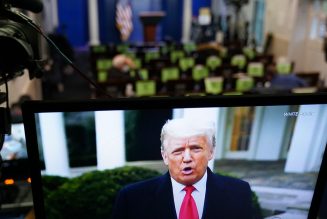/cdn.vox-cdn.com/uploads/chorus_asset/file/23906799/VRG_Illo_STK022_K_Radtke_Musk_Crazy.jpg)
Sen. Chris Murphy (D-CT) is demanding a national security review of Elon Musk’s Twitter takeover and the nearly $2 billion in Saudi funding for the deal.
In a statement on Monday, Murphy called on the Committee on Foreign Investment in the US (CFIUS) to open an investigation into Saudi investment in Twitter. Musk’s deal, totaling $44 billion, includes billions in foreign funding from both Saudi Arabia and Chinese investors. Saudi Arabia’s Kingdom Holding Company and the private office of Prince Alwaleed bin Talal claimed to be Twitter’s “second largest investors,” with a combined stake worth $1.89 billion.
“We should be concerned that the Saudis, who have a clear interest in repressing political speech and impacting U.S. politics, are now the second-largest owner of a major social media platform,” Murphy said in a Monday tweet.
The Treasury Department declined to comment on the request.
“This is a dangerous trend, and we don’t have to accept it”
CFIUS rarely comments on ongoing investigations, but the interagency panel overseen by the Treasury Department is facing mounting pressure to review the deal. On Friday, the American Economic Liberties Project also urged CFIUS and the Federal Communications Commission to look into Musk’s foreign funding in Twitter and his Starlink internet company.
“Elon Musk’s potential dependencies on the Chinese government are concerning, and the Committee on Foreign Investment in the U.S. should investigate his takeover of Twitter, as should the Federal Communication Commission, considering Musk’s control of Starlink’s satellite internet service,” Sarah Miller, AELP executive director, said in a Friday statement.
Saudi Arabia’s sovereign-wealth fund has invested billions into US publicly traded companies over the last few years. The Saudis have invested around $7.5 billion in American companies, like Amazon and Google, this year, the Wall Street Journal reported in August.
“If this deal goes through, two of the most important U.S. social media platforms will be owned, in whole or in part, by China (TikTok) and Saudi Arabia (Twitter),” Murphy said on Twitter Monday. “This is a dangerous trend, and we don’t have to accept it.”









